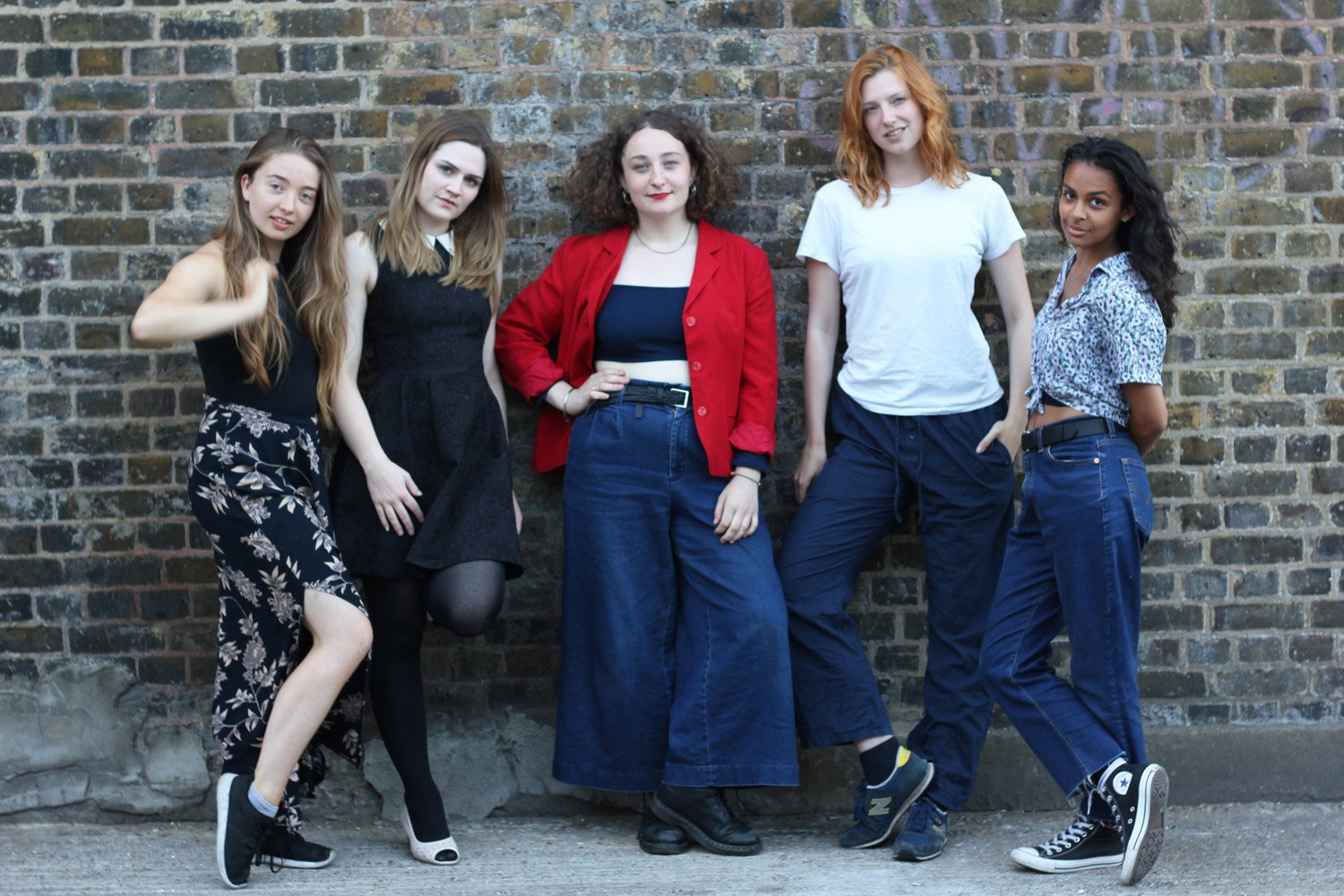Here at the Space we love working with artists. It’s one of the reasons we are here and we couldn’t do what we do without them. As we continue to grow as a theatre we want to bring artists with us, nurturing them in their development and making sure we offer the right kind of support, at the right moment.
With this in mind we are pleased to announce our new Associate Artist scheme! A bespoke package of support to specifically chosen companies or artists who we believe have real, exciting potential and who we can help flourish.
So – without further ado. We present to you Wonderbox and Bric A Brac… in their own words…
WONDERBOX
Describe Wonderbox in three words?
Fun, Raucous, Feminist
How did it all begin?
We met at the National Youth Theatre. We spent a month in a room with 30 women, hotboxing our creativity and it was wonderful. Five of us decided to carry on making theatre together, because we didn’t want it to end.
If I was coming to see a Wonderbox show – what can I expect?
They’re quite high-energy, they’re funny, they’re a bit filthy. They tackle big subjects but are rather irreverent about them. Expect candid discussion, cheeky movement sequences, wacky characters, and a political sting.
What is your process of creating work?
We’re an ensemble, so it’s very collaborative. We have our writer, who’ll create a script for us to work with, or we’ll find other scripts written by women. We work with new writing rather than established texts. Then we’ll experiment in the rehearsal room, with our director guiding the process.
Proudest achievement so far?
After ‘A Womb of One’s Own’, which we performed at the Space, women told us after the show how much it meant them and that they felt no longer alone in their experience. It’s very special when someone tells you that. Seeing my mum laugh at a lesbian sex joke was a proud moment especially.
What does being an Associate Artist mean to you?
It means a lot! It shows us that people trust us and believe we make great work and see our future as bright.
What is the one thing you can’t do without in rehearsals?
Partial nudity.
BRIC A BRAC
Describe Bric A Brac in three words?
Explorative, ensemble based and fun
How did it all begin?
Our company began over €5 pints of mojitos (yes, pints of mojitos) at a bar called ‘Bric à Brac’ in Paris, 2015. We were in our second year at Jacques Lecoq and knew we enjoyed working together so when Anna, our director, asked if we wanted to create a show together, we leapt at the opportunity! Fast forward four years later, and while Bric à Brac the bar has sadly closed down, our company has never felt more motivated and excited about the future.
If I was coming to see a Bric A Brac show – what can I expect?
You can expect fun and fast-paced heartfelt storytelling with lots of movement, humour and packed with plenty of colourful visuals! No Bric à Brac show is the same so expect the unexpected. Just sit back, relax, and we guarantee you will enjoy yourself.
What is your process of creating work?
Before getting into the room each company member prepares a personal response to the topic material. Through a process of playful and increasingly structured improvisation we are able to generate new material. From this we can then develop characters and build narratives. We use movement, object manipulation, and other theatrical techniques in order to create slick transitions, bringing the whole show together.
Proudest achievement so far?
Being named Associate Artists at The Space, of course!
What does being an Associate Artist mean to you?
Collaboration, support, guidance, belief and trust. It’s an honour to have the backing of a theatre that is accessible to all and continues to have faith in the work we do.
What is the one thing you can’t do without in rehearsals?
A generous sense of humour and a total willingness to clown about!





















